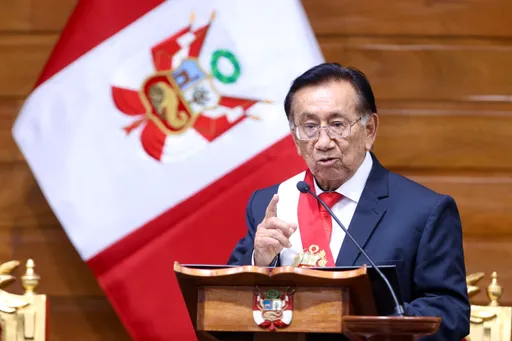Ambulance workers have gone on strike in the UK, widening a dispute with the government over its refusal to increase pay above inflation after recent walkouts by nurses.
A series of stoppages are causing misery in Britain in the run-up to Christmas, with railway workers and passport control officers also threatening to ruin festive holiday getaways as the government refuses to cede on pay demands.
On Wednesday, ambulance staff at the state-run National Health Service (NHS), including paramedics and call handlers, walked out, prompting warnings from healthcare leaders about straining a health system already in crisis.
Unions representing both NHS nurses and ambulance workers have threatened further stoppages in the new year if the government keeps refusing to discuss pay.
Around 40 staff formed a picket line outside West Midlands Ambulance Services' hub in Longford in central England, standing behind a banner that read, "Our NHS is under siege".
As passing ambulances sounded their horns in support, a Unite union representative, Steve Thompson, said the walkout was about trying to retain and improve services as well as pay.
"This is about telling them (the government) that we are not going to allow it (a deterioration in services) to happen. We are not going to roll over," said Thompson.
Ministers have drafted in 750 military personnel to drive ambulances and perform logistics roles to mitigate the impact of Wednesday's ambulance strike.
READ MORE: Thousands of UK nurses on day-long strike for better wages
'Immense pressure'
Employees across the UK economy are demanding salary rises in the face of decades-high inflation - currently running at nearly 11 percent - which is spurring the worst cost-of-living crisis in a generation.
Matthew Taylor, chief executive of the NHS Confederation, urged the public not to panic during strikes on Wednesday.
"It's important to say that if you have a life-threatening emergency, you must call 999, and the trade unions have made absolutely clear they'll respond to those," he said.
However, Adrian Boyle, president of the Royal College of Emergency Medicine, said the emergency system had been under "immense pressure" for the last three years.
He called last year "the worst we've ever seen it" when it came to delays in getting patients into hospitals from ambulances due to a lack of beds.
Boyle said accident and emergency departments were expecting people to make their own way to hospitals - even those with life-threatening conditions.
"We're expecting people with strokes and heart attacks to turn up at the front door. Now, because of the delays, this has already been happening quite a lot anyway," he told local media.
"The best way to help them and help everyone else in the country is for us to get a grip and reduce inflation as quickly as possible," Prime Minister Rishi Sunak has said.
READ MORE: UK's nursing staff stages second walkout over pay























